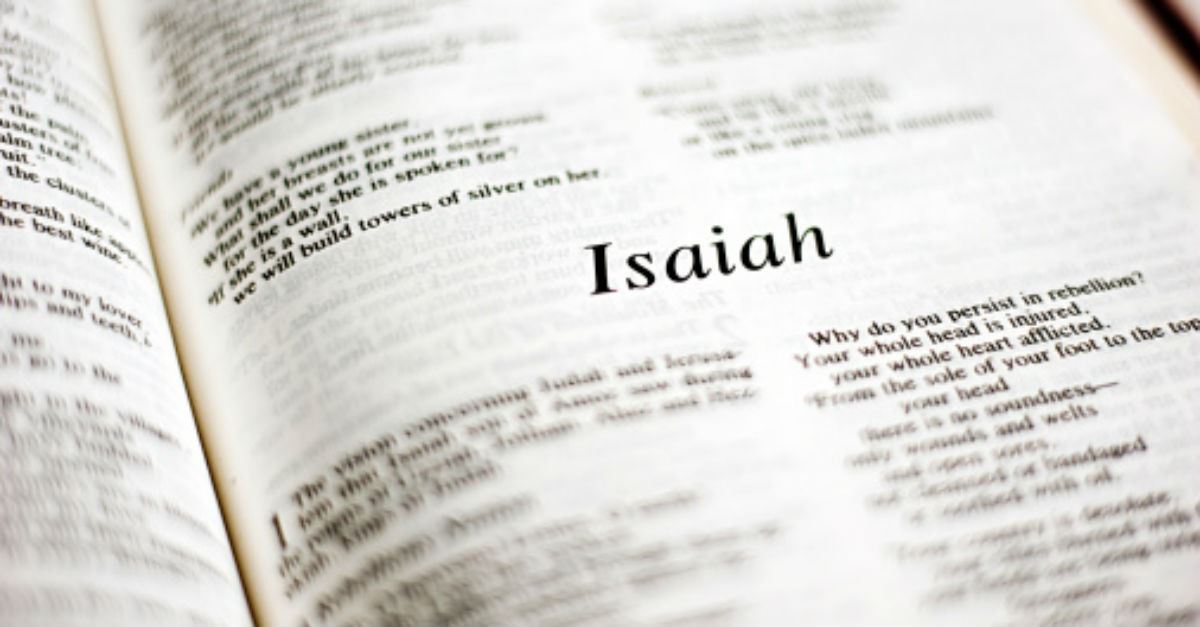Recognizing Idolatry and 7 Idols Present in Our Lives Today

As adults, my brother and I laughed over a memory with our mother, one we had not easily forgotten. Back in the early 1960s, Mother used to “go to town” to pay bills. In those simpler days, parents could leave their children alone in the car without worry that someone would snatch them. So it was on such a day that Mother left my brother and me in the car while she ran inside the newspaper office. “Stay in the car,” she told us. “Otherwise, you’ll get a spanking when you get home.”
She went in. We jumped out of the car and ran around on the sidewalk, and then got caught. Mother stayed true to her word. As children, we cried uncontrollably. As adults remembering this, we laughed.
Looking back on that now, I don’t believe Mother hurt us. But there was a separation between a loving parent and her children, and for me, that was the deepest wound. Mother was the queen of our world, and she took that role seriously. She held to firm discipline, but she also loved us unconditionally and well.
Big “G” or Little “g”?
In the latter chapters of Genesis, we read how the Hebrew children came to Egypt to live. They were welcomed with open arms and given a lush piece of land. However, when the Book of Exodus opens, 400 years have passed. and the Hebrews are slaves to the Egyptians. In time, God brought a deliverer, Moses, who led the Hebrews out of Egypt back to the Promised Land. Shortly after leaving Egypt—and after the Hebrews had seen countless miracles by the hand of the Almighty—God and Moses had a little “sit down” on Sinai. Here, God gave The Ten Commandments, the first one being “I am the Lord your God, who brought you out of Egypt, out of the land of slavery. You shall have no other gods before me” (Exodus 20:2,3).
“Gods” were clearly something the people understood. Their ancestors had worshipped other gods. In fact, Abraham, the father of their nation and faith, had been brought up in a polytheistic home. Their “mother” Rachel had snuck household idols out of her father’s home and hidden them in her camel’s saddle. For 400 years, they’d lived among a people who worshipped the most complex pantheon of gods than any other civilization in the ancient world. Gods such as Osiris, his wife Isis, Horus, Seth, and Ra.
Once they arrived in Canaan, rather than destroying everything as God had ordered and keeping Him the as Most High God, they found themselves surrounded and influenced by gods such as Baal, Asherah/Ashtoreth. Israel, although warned against it, also fell prey to the worship of Molech (Leviticus 18:21, 20:2-5; Jeremiah 32:35, 2 Kings 23:10), a god of sexual sin who required child sacrifice.
When the ten northern tribes of Israel (called Israel) were captured by the Assyrians (722 BC), and later the two southern tribes (called Judah) were captured by the Babylonians (586 BC), God’s chosen people were forced to then live among a people who worshipped Marduk. Marduk was called “the lord god of heaven and earth.” The belief was that all nature came from him and the Babylonians (as well as the Assyrians and the Persians) believed he controlled the outcome of nations.
Isaiah’s Warning . . . and Promise
As my mother had warned before her children jumped out of the car, God warned His people time and again: If you do this [good thing], I will bless you. If you do this [bad thing], I will punish you (see Leviticus 26). Yes, He knew there were other gods out there, but Israel was to worship Him alone. With every fall of His people, and with every punishment and restoration, God reminded them that He alone is God. Not heeding that resulted in painful consequences. But worst of all, as with Mother and me, the sin brought separation between them and God.
Isaiah’s prophetic work (the Book of Isaiah) covered the people’s history and their future—there would be an exile—but it also reminded the people (and us today) that God reigns over all other gods, that He prevails, and that there would be a restoration.

Photo Credit: Thinkstock/jodie777
The Questions God Asks
Within the Book of Isaiah, God orders the prophet to comfort the people with His words (40:1). Then, for the next several verses, Isaiah reminds those listening that God, not the gods, is the Creator of the world and all that is in it, and that He and no other god is the One who determines the outcome of the nations and their people.
And then He asks this question: “To whom will you compare me? Or who is my equal?” says the Holy One (Isaiah 40:25).
To our modern Judeo-Christian ears, the answer seems simple, doesn’t it? There is no one and nothing equal to God. Irish biblical scholar J. Alex Motyer (1924-2016) wrote as a commentary on this verse that this is one of the central Old Testament passages on the doctrine of creation. It teaches that the physical fabric of creation is a direct artifact of the Creator.
Idolatry and 7 Idols of Today
Yes, it’s easy to scoff and say, “No way would I place an idol over God. Those people must have been so easily influenced!” But the truth is, we have a long list of idols today.
Idolatry, by its definition, is when someone or something becomes #1 in our life, surpassing God. Idols are formed when we substitute “time with God” with “time with [insert idol here].” Even good things can become idols if we aren’t careful.
Let’s look at a few:
1. Sex. A most precious gift from God to the bridal couple—not to be opened until after marriage—is the sexual union that not only leads to intimacy but also to the fulfillment of one of His first commandments to man and woman: be fruitful and multiply (Genesis 1:28). Today the sexual union has left the closed-door bedroom and hit the political stage. It has been tainted and violated and abused and used to abuse.
2. Technology and Entertainment. We simply cannot live without our cell phones, our laptops, our smart TVs. What if we unplug and miss something? Like Pavlov’s dog, we hear the notification ding, and we immediately look. We cannot take a trip without our laptops or iPads or Kindles, and heaven help us if our televisions don’t come equipped with all the latest apps, which we will scroll through ad nauseum because the sheer volume has left us unable to make a simple decision. Other forms of entertainment that can become idols are video games, music, musical instruments, or sports. How much time do we spend being entertained, all by things which will pass away, rather than being in the presence of God, who will always be?
3. Money, which is not bad in and of itself. It’s just metal and paper, really. But to pursue it above all else turns it from what we need to make purchases to what we cannot get enough of. Paul said, “The love of money is the root of all kinds of evils” (1 Timothy 6:10, emphasis mine). And so it goes. Many of us today are concerned about economics and justifiably so. But do we put our faith and hope in the provision of stocks and bonds, or in God?
4. Careers/Status. Sometimes we cannot climb to the top fast enough or make the top high enough. We earn a degree, and we want another. Then another and another. Education is a good thing to have until it becomes all we seek after.
5. Relationships. Falling in love is wonderful but when the object of our affection becomes more important than God, we have made that person into an idol. Spouses, parents, siblings, friends, even our children can become idols when time with them becomes of such significance, we have no time for God.
6. Creature Comforts. When I read the Acts of the Apostles and dig into biblical history to understand the hardships the men and women who carried the Good News of Christ to the world went through, I am saddened by what we think the world owes us as today’s ambassadors. We are not to pursue comfort; we are to pursue God.
7. Our Bodies/Ourselves. Nearly everything in today’s advertising world tells us to look younger, work out more, dress sexier. We have made our bodies into idols that must be looked after, pampered, cared for, and pushed to the limit. We have placed our identity in ourselves—who we are and what we look like—rather than in who we are in Christ.
Other idols can be fame, influence, “things,” hobbies, etc. We each could create our own list.
Remember, none of these things are wrong in and of themselves. There is nothing wrong with enjoying a hobby or working out. There is nothing wrong with earning money or purchasing trinkets. There is nothing wrong with sitting in first class rather than coach. Or owning a Coach purse. But when these things come first in our lives, we’ve created an idol.
And God has warned us . . . and God has asked, “To whom will you compare me? Or who is my equal?” How will you answer Him?
Photo Credit: ©GettyImages/FediushkinaElena

Originally published July 28, 2022.







